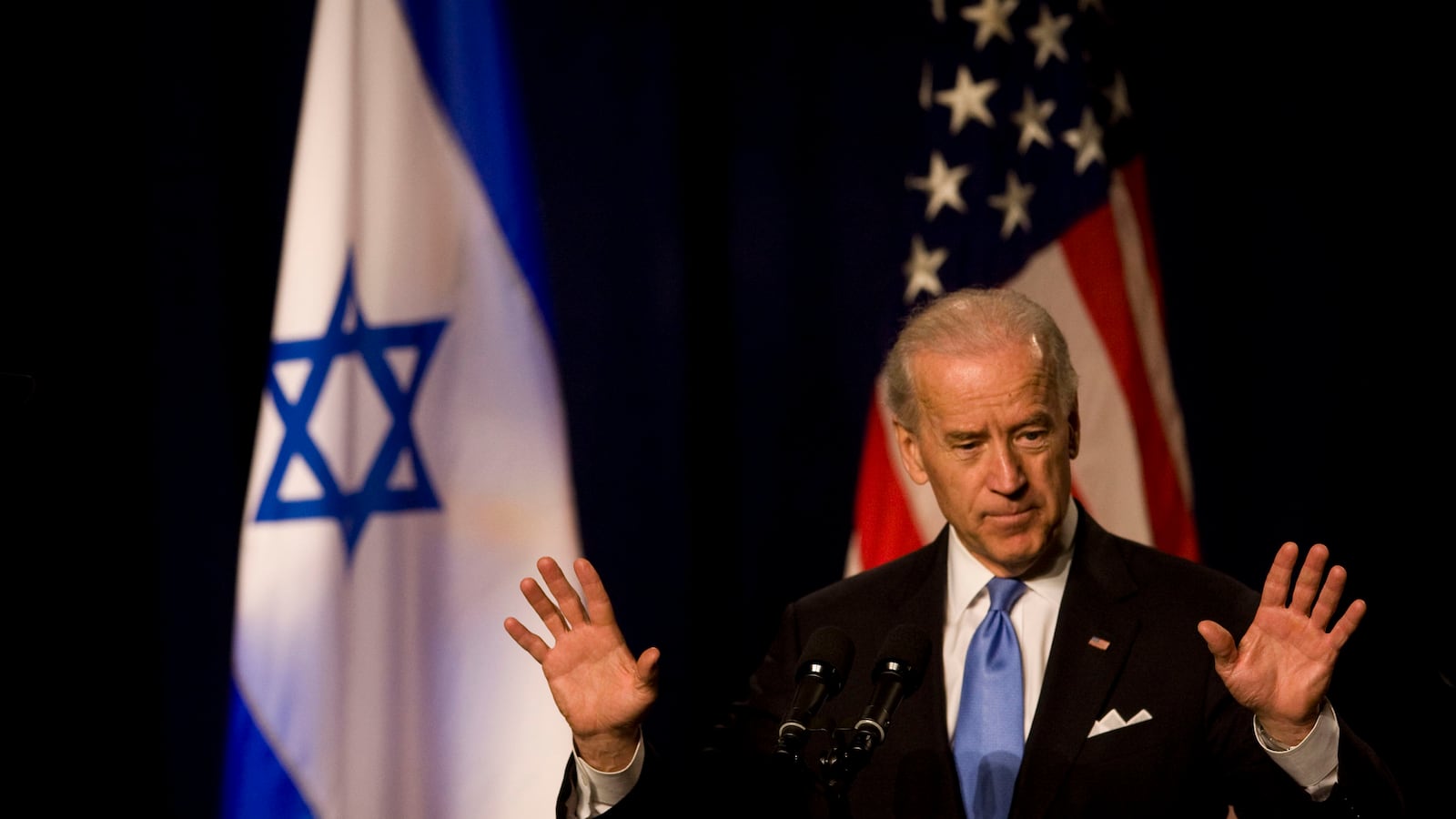If Afghanistan is the “graveyard of empires,” the Israel-Palestine conflict has too often been the place where the foreign-policy aspirations of U.S. presidents go to die. Joe Biden, who became a U.S. senator ten months prior to the 1973 Yom Kippur War, does not want to make the same mistake as his predecessors.
As tensions rose and ultimately violence broke out between Israelis and Palestinians over the past several weeks, pressure grew for the U.S. to play, as it has in the past, an active role in seeking a solution. Israelis and Palestinians, Democrats and Republicans, and leaders around the world were anxious to see how the new president would differentiate himself from his predecessor, Donald Trump, but also perhaps from the heavily pro-Israel stance of other prior administrations.
For most of the past two weeks, as the conflict followed old patterns of escalation leading to barrages of rockets fired at Israel by Hamas, the use of heavy weaponry by Israel against what they asserted were military targets and disproportionate losses by the Palestinians, a new chorus in Washington among members of Biden’s own party grew louder. Senators like Sanders, Warren, and Menendez called for more conditionality on aid to Israel. Members of Congress like representatives Tlaib, Ocasio-Cortez, and Omar called for more support for the rights of Palestinians who, once again, were dying at a rate almost 20 times higher than that of the Israelis.
The question among observers was, “How would Biden be different?” Would he tilt like some of his Democratic colleagues toward a more even-handed approach, one that penalized the Israeli leadership for their almost promiscuous coziness with Trump & Company?
Once again, Biden confounded expectations. Senior administration officials described a president who was “centered,” “confident of his own views” guiding a U.S. response that in retrospect was notable not for a bias toward one side or the other but rather toward avoiding getting sucked into what one senior foreign policy adviser called “the hopeless search for solutions” to a problem that has festered for nearly seven and a half decades.
On the “Deep State Radio” podcast that I host each week, we were joined this week by Alon Pinkas, a former adviser to multiple Israeli prime ministers and foreign ministers. Pinkas, a diplomat who once served as Israel’s consul general in New York, noted how tricky and pitfall-ridden the challenge was for U.S. presidents seeking to help mediate the Israeli-Palestinian dispute. “Israelis and Palestinians don’t agree on much,” he said, “but one thing they do agree on is that whatever happens, it is America’s fault.”
Biden and his top advisers, like Secretary of State Antony Blinken and National Security Adviser Jake Sullivan, were first and foremost committed to not being sucked into a thankless task and thereby distracted from the domestic agenda that is their stated and clearly evident top priority, according to those close to the process in both the White House and at the State Department.
His administration responded, therefore, in a measured and largely cautious way. It was, those involved noted, almost a week from the start of the violence before the administration began to speak of a ceasefire. Much of the Biden team’s work was behind the scenes, seeking to guide the Israelis and the Palestinians away from actions that would inflame the situation more—including paying attention to details like the route of an Israeli parade that, misdirected, might trigger more conflict and cautioning that Israeli responses be measured or that Palestinian leaders do what they could to contain violence. They opposed an effort in the UN that they saw as only likely to exacerbate global acrimony without producing material results.
They avoided placing too much public pressure on Israeli Prime Minister Netanyahu because they suspected he would make a public display of ignoring it. When, by this past Wednesday, Biden felt compelled to publicly turn up the heat on Netanyahu, that is exactly what happened… for a matter of hours.
By Friday, however, Netanyahu was reportedly outlining a cease-fire plan to his security cabinet, and what the Biden team was aiming for is now what seems to be happening. Now, they hope, an end to the violence will allow for healing and hopefully some concrete successes in the quieter efforts at diplomacy led by much respected Deputy Assistant Secretary of State Hady Amr but buttressed by the active involvement “working the phones” of the full range of top U.S. officials.
By following this path, the hope is that Biden and his team can return their attention not only to their domestic agenda but also to their top two priorities in the greater Middle East region—negotiations with Iran regarding their nuclear development efforts and meeting the U.S. deadline of getting out of Afghanistan by September 1. There is also hope among the top officials involved that more responsibility for managing this and other regional conflicts will be assumed by Middle Eastern leaders themselves. They cited “normalization,” the process also known as the Abraham Accords, as one that they hoped will shift the dynamic in managing such conflicts in the future.
It would be a mistake for the Netanyahu government or its successors to view Biden’s response as a license to continue the policies that led to the current flare-up, however. The pressure within the Democratic Party to find ways to put the brakes on what are rightly perceived as serial Israeli abuses of Palestinians is growing. A sign of this is the effort by Senator Bernie Sanders to block approval of another $750 million in military assistance to Israel. But that, in the view of a Senate Foreign Relations Committee senior staffer, is “just the tip of the iceberg. If there is another wave of settlement building or extremist attacks on Palestinians, you will see the Congress stepping up even if the administration is seeking to avoid getting too sucked into this swamp of a problem.”
Biden, savvily, understands this too. No one is more experienced than the former Foreign Relations Committee Chairman-turned-President with the ways the Congress can offer the administration both leverage and cover.
So far, though, the Biden approach has produced frustration among some, including me, who saw the current crisis as a chance for him to take a more concrete stand against Israeli human rights abuses. It cannot be denied that Biden has so far deftly navigated the traps that snared his predecessors. Keeping the ship on course is what captains are hired to do, and that is clearly the intention of the man who’s now at America’s helm. He knows well enough that the future is uncertain, especially when it comes to the festering conflict between Israelis and Palestinians, and that by focusing on getting stronger at home, he will also increase his options for dealing more strongly with these issues over the remainder of his presidency.



